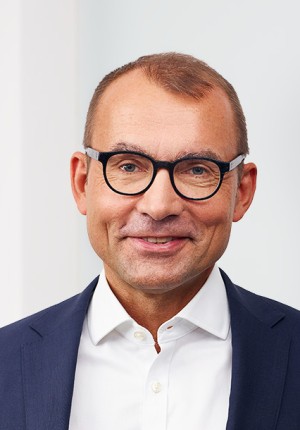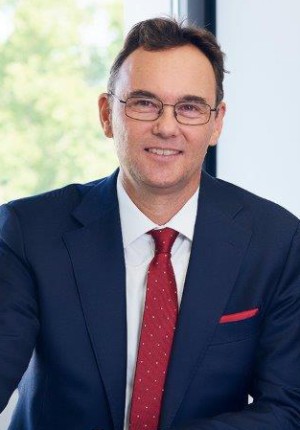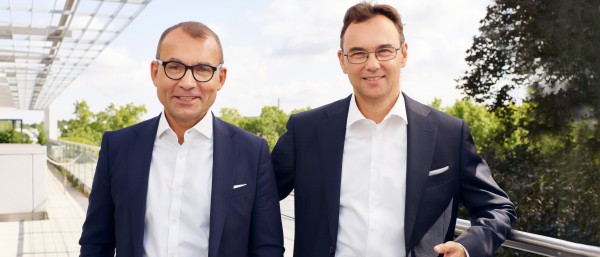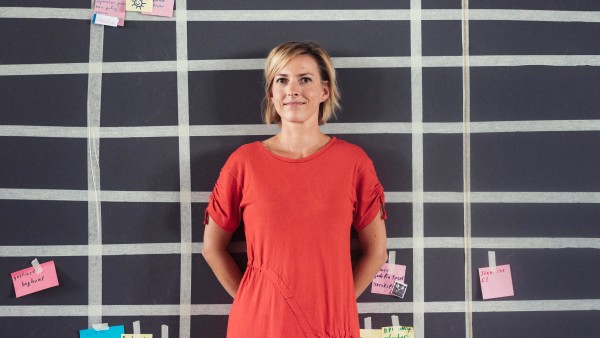The Co-CEOs of KfW Capital, Dr Jörg Goschin and Alexander Thees, discuss the impact that KfW’s new subsidiary will have on the venture capital market in Germany.
About Mr Goschin

Being a founder himself and an experienced investment professional, Dr Jörg Goschin has in-depth market knowledge and a close-knit network in the venture capital community. Previous stations of his career include Metzler, The Boston Consulting Group, BNP Paribas, Cerberus, Blackstone and Alstin. Jörg holds a PhD in finance and diploma in electrical engeneering and economics.
Three years ago, KfW restructured its involvement in the venture capital sector. What will change now that it has created a new subsidiary, KfW Capital?
ALEXANDER THEES: The aim of its promotional strategy will remain unchanged: KfW Capital is set to stimulate the venture capital funding landscape with its investments, providing more capital for young, innovative and growth-oriented tech companies in Germany. We will be increasing KfW’s current commitment to an annual sum of EUR 200 million by 2020. As a finance company with 25 members of staff, we are able to act faster and in a way that is better suited to the market. As has always been the case, we want to maintain a high standard of quality with our investments as we are eager to be seen as a flagship investor. This in turn will help us to raise even more private capital. And we are already on the right track: KfW’s investments to date have garnered it an outstanding reputation and now KfW Capital is hoping to raise it even further.
What type of investor are you hoping to encourage?
JÖRG GOSCHIN: Those from the private sector, particularly institutional investors, such as insurance companies and pension funds, who do not traditionally invest in venture capital as an asset class. However, we would also like to encourage trusts and family offices. What’s more, we are very interested in attracting more foreign capital for investments in Germany.
About Mr Thees

Alexander Thees has been working in various positions at KfW Group since 1996, having held senior positions since 2002. He has business policy and operational experience in SME finance as well as in structured finance activities. Since the establishment of KfW Capital, Alexander Thees has been managing the subsidiary together with Jörg Goschin.
And what type of funds will you be investing in?
GOSCHIN Our investments will focus on European venture capital and venture debt funds, who invest, for example, in German tech companies and who are owned primarily by private investors. Fund management plays a key role in our decisions. How well is the fund able to invest the capital that we provide into attractive tech companies? What type of deal flow and networks are in place? Are they in a position to develop the companies in their portfolio or even sell them? We will also be investing in newly established funds, giving them the chance to make a name for themselves on the VC market. Known as first-time funds, these companies tend to be set up by experienced investment managers. However, they often find it tough to raise capital as they have yet to gain a track record as a fund, in other words they don’t have a list of successful past investments.
THEES: However, there could be cases where the individual team members have a similar history, which then provides us with a basis for our investment decision. KfW Capital wants to provide a boost to equity investment. However, we will always stick to our investment strategy, i.e. investing a maximum of 19.99 per cent of the total volume of any such funds, whose majority investments are made up of private capital.
Your primary goal is to promote German start-ups. How will you make sure that the capital actually benefits German companies as intended?
GOSCHIN: Before we invest, we study the target fund’s investment focus with a fine-toothed comb. Besides finding funds that are geared towards innovative companies in the growth phase, it is also decisive for us that the funds include Germany on their lists of preferred countries. And, this is not meant to be a bitter pill that the funds are forced to swallow. Quite the opposite. With its thriving start-up scene, Germany is highly regarded as a centre of technology. Nevertheless, we always bind our commitment to the condition of investing in German tech companies. In other words, funds are required to use the amount that we provide (or even more) to invest in German companies. And this can be anywhere up to EUR 25 million, which is our maximum investment amount, or no more than 19.99 per cent of the fund volume.
Do you have a preference for certain types of technology or funds that invest in certain sectors, such as e-commerce or life sciences?
THEES: Our ultimate aim is to promote innovative companies. For us, it is less about certain types of technology and more about a specific phase of business. The funds invest in companies who are experiencing very strong, dynamic growth and who need growth capital to keep on this path. There is currently a gap in this market in Germany, mainly because there just aren't enough funds here. With our investments, we hope to contribute to boosting the culture of innovation in Germany.
The creation of KfW Capital was also part of an initiative by the German Federal Government – do they also get a say in your investment decisions?
THEES: When it comes to strategy and product design, then of course we work closely with the responsible bodies at the German Federal Ministry for Economic Affairs and Energy and the Federal Ministry of Finance. However, any decisions relating to operations are down to KfW Capital's Management Board. For investments above a certain volume, we will also involve KfW as our shareholder and KfW Capital’s Supervisory Board, in which representatives of both ministries are present. But there will be no direct political influence on our decisions. This is not the intention of the political world.
Are you also looking to make money from your investments or is it solely about promotion?
GOSCHIN: We are pursuing a promotional strategy that will enable us to really stimulate the VC market in Germany. However, our strategy will also see us applying interest to the capital we employ. KfW Capital – with its stakes in the High-Tech Start-up Fund, in coparion and in other VC and VD funds – has a very broad foundation. In terms of the overall portfolio, we are therefore assuming that we will generate profit, at least by the time the target funds have sold their portfolio companies. We are expecting to yield the J-curve that is so common in the VC market. This means that losses occur during the early stage as some individual investments default. However, these losses are later balanced out by profits from other investments. We invest in individual funds according to something known as pari passu conditions (at an equal pace), which means that we always have the same opportunities as all the other private fund investors but we also share the same risks, too. Our profits go to KfW, where they are then made available for other promotion measures.
Published on KfW Stories: Tuesday, 9 October 2018








Data protection principles
If you click on one of the following icons, your data will be sent to the corresponding social network.
Privacy information